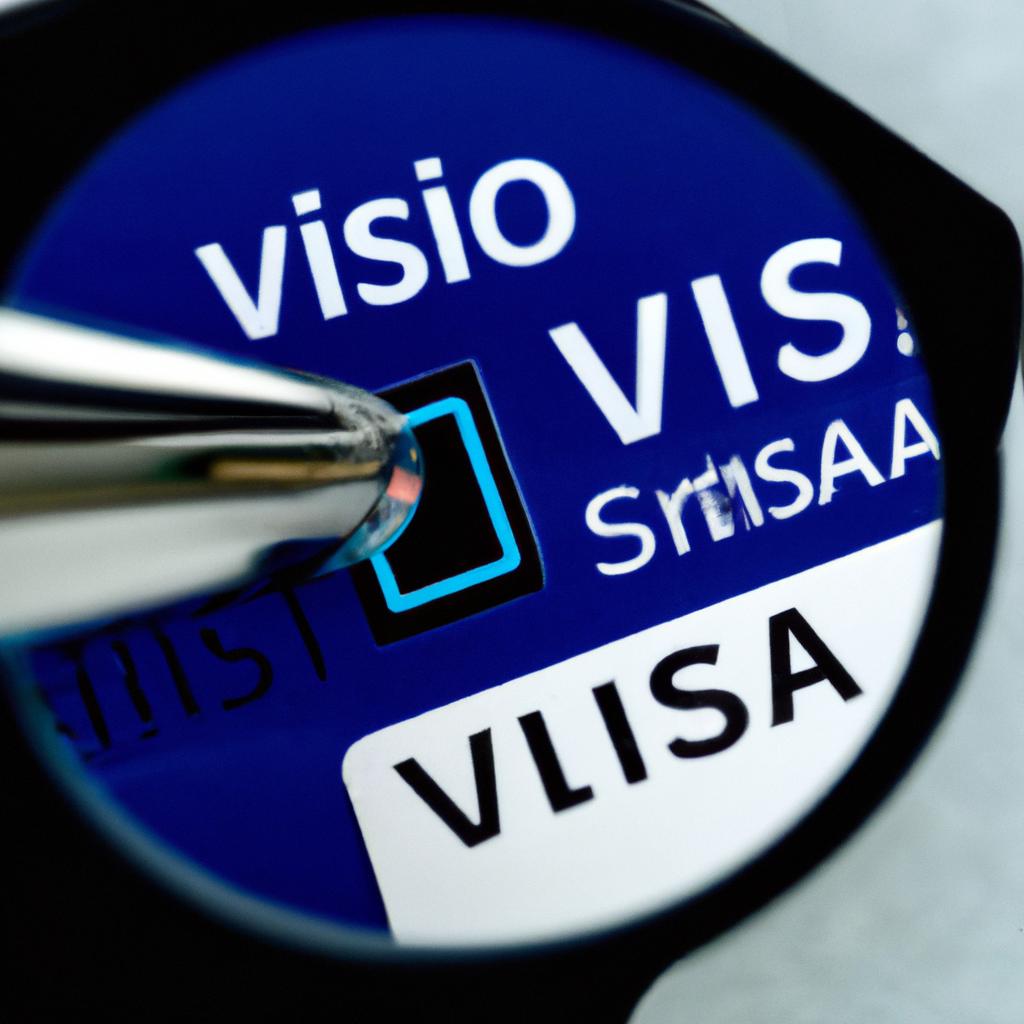In the ongoing battle against fraud, Visa has turned to artificial intelligence to combat a growing threat. With scammers also harnessing the power of AI, the stakes are higher than ever. Last year alone, Visa successfully used AI technology to detect and prevent a staggering $40 billion in fraudulent transactions. This article examines how Visa employed innovative AI solutions to stay ahead of the curve in the fight against financial crime.
Table of Contents
- Visa’s use of Artificial Intelligence in Fraud Detection
- Challenges in combating fraud with AI technology
- Recommendations for effectively leveraging AI against scammers
- Future implications of scammers utilizing AI in fraudulent activities
- Q&A
- To Conclude
Visa’s use of Artificial Intelligence in Fraud Detection

Visa has been at the forefront of utilizing artificial intelligence in its fraud detection efforts. With scammers increasingly turning to AI to carry out fraudulent activities, Visa has invested heavily in innovative technologies to stay one step ahead. In the past year alone, Visa’s AI-powered fraud detection has successfully prevented over $40 billion in potential fraudulent transactions, safeguarding both customers and merchants.
One of the key strategies Visa has employed is the use of machine learning algorithms that continuously analyze vast amounts of transaction data in real-time. These algorithms can quickly identify patterns and anomalies that indicate potential fraudulent activity, allowing Visa to flag suspicious transactions for further investigation. By leveraging AI technologies, Visa is able to detect and prevent fraud with greater accuracy and efficiency than traditional methods.
Visa’s commitment to combating fraud with artificial intelligence is evident in its ongoing efforts to enhance its fraud detection capabilities. Through continuous research and development, Visa is constantly improving its AI algorithms to adapt to evolving fraud tactics. By harnessing the power of AI, Visa is setting a new standard for fraud prevention in the digital age.
Challenges in combating fraud with AI technology
Visa recently announced a major milestone in its fight against fraud, revealing that it successfully used artificial intelligence to detect and prevent $40 billion in fraudulent transactions. This achievement is significant given the increasing sophistication of fraudsters who are also leveraging AI technology to carry out their illegal activities. The use of advanced AI algorithms has allowed Visa to stay one step ahead and protect both consumers and merchants from falling victim to fraudulent schemes.
Despite the success Visa has had in combating fraud with AI technology, there are still several challenges that must be addressed. One of the main challenges is the constant evolution of fraud tactics, as scammers adapt and find new ways to bypass detection measures. Additionally, the sheer volume of transactions processed by Visa on a daily basis poses a challenge in terms of scalability and efficiency. Ensuring that AI systems can effectively analyze and flag potentially fraudulent transactions in real-time is crucial to staying ahead of fraudsters.
To overcome these challenges, Visa has continued to invest in research and development to enhance its AI capabilities. By leveraging machine learning and data analytics, Visa is able to train its AI systems to detect patterns and anomalies indicative of fraud. Additionally, Visa works closely with law enforcement agencies and industry partners to share information and collaborate on identifying new fraud trends. Despite the challenges posed by fraudsters leveraging AI, Visa remains committed to staying at the forefront of innovation in the fight against fraud.
Recommendations for effectively leveraging AI against scammers
In the battle against fraud, financial institutions are turning to artificial intelligence to stay one step ahead of scammers. Visa, for example, recently announced that they have employed AI technology to detect and prevent $40 billion in fraudulent transactions. As scammers become more sophisticated in their tactics, it is crucial for companies to effectively leverage AI to combat these threats.
One recommendation for effectively using AI against scammers is to constantly update and refine the algorithms used to detect suspicious activity. By continuously fine-tuning the AI system, financial institutions can stay ahead of scammers who are also harnessing AI technology for their fraudulent activities. Another important strategy is to integrate AI with other security measures, such as biometric identification and behavioral analytics, to create a multi-layered defense system against fraud.
Moreover, collaboration between financial institutions and law enforcement agencies is essential in fighting fraud effectively. By sharing information and resources, organizations can better identify patterns of fraudulent activity and work together to apprehend scammers. Ultimately, staying vigilant and proactive in leveraging AI technology is crucial in the ongoing battle against fraudsters who are increasingly using AI to carry out their illicit schemes.
Future implications of scammers utilizing AI in fraudulent activities
With the rise of artificial intelligence (AI), scammers are finding new ways to carry out fraudulent activities on a larger scale, making it more challenging for companies to detect and prevent such crimes. Visa, one of the largest financial institutions in the world, has implemented AI technology to combat fraud, successfully screening $40 billion worth of transactions in the past year alone.
As scammers continue to evolve and adapt to advancements in technology, it is crucial for companies to stay ahead of the curve by investing in AI-powered solutions that can effectively detect and prevent fraudulent activities. Visa’s utilization of AI has proven to be a game-changer in the fight against scammers, allowing them to identify suspicious transactions in real-time and mitigate potential risks before they escalate.
While AI has undoubtedly enhanced fraud detection capabilities, it is essential for companies to remain vigilant and continuously update their systems to stay one step ahead of scammers. By leveraging AI technology and implementing robust security measures, financial institutions can protect their customers from falling victim to fraudulent activities and ensure the integrity of their transactions.
Q&A
Q: How did Visa employ artificial intelligence to combat fraud?
A: Visa utilized artificial intelligence technology to analyze billions of transactions for patterns indicative of fraudulent activity.
Q: What was the outcome of Visa’s use of AI in fraud detection?
A: Visa successfully identified and prevented over $40 billion in fraudulent transactions with the help of AI.
Q: As scammers increasingly turn to AI technology, how is Visa adapting its fraud detection strategies?
A: Visa is continuously updating its AI algorithms and investing in advanced machine learning techniques to stay ahead of scammers who are also utilizing AI.
Q: What measures is Visa taking to ensure the security of its customers’ financial information?
A: Visa is enhancing its cybersecurity protocols and collaborating with industry partners to share information and combat fraud on a global scale.
Q: How important is the role of AI in the future of fraud detection within the financial industry?
A: AI is becoming increasingly essential in the fight against fraud, as scammers become more sophisticated in their tactics and technology advances. Visa’s success in utilizing AI highlights the critical role that artificial intelligence plays in ensuring the security of financial transactions.
To Conclude
As scammers continue to evolve their tactics with the use of artificial intelligence, Visa’s implementation of AI technology to combat fraud has proven to be a crucial defense in protecting billions of dollars in transactions. With $40 billion successfully checked by AI, it is evident that the battle against fraud requires constant innovation and vigilance. As the financial industry navigates this ever-changing landscape, the importance of leveraging advanced technologies to stay ahead of fraudsters cannot be understated. Visa’s commitment to staying at the forefront of AI technology serves as a stark reminder of the ongoing battle against fraud, and the necessity of adapting to the evolving threats in the digital age.

